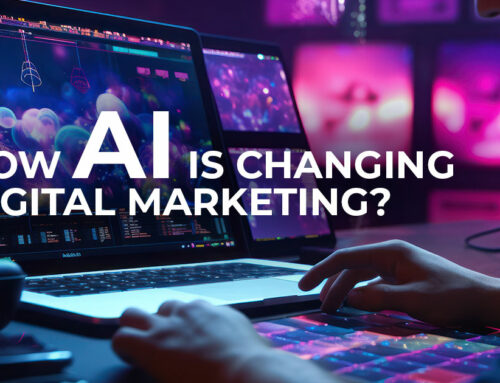AI is no different from any other technology in that there are pros and cons to using it. It’s important for marketers to be aware of these so they can make decisions about what tasks to use AI for and how to use it.
The Pros :
Boosts productivity : Free up your time by automating repetitive tasks so you can focus on being more creative and strategic. For example, why not consider using AI tools to schedule and post on your social media channels based on insights such as time of day to post ?
Drives efficiency : Use AI to be more efficient in your day-to-day tasks such as data input, sorting campaign leads, and replying to customer queries.
Offers insights : Use AI’s data-driven capabilities to get insights into customers and campaigns to feed into strategic decisions.
Personalise at scale : Analyse customer data and create tailored content or recommendations to enhance customer experience. This could be useful in your email marketing, where AI can target customer segments with tailored messaging based on actions or preferences at scale.
Content generation and optimization : Generate optimised content at scale for all digital channels using AI tools. Optimization is particularly important for SEO so you can input prompts into a tool like CHAT GPT target particular keywords or phrases that feed into customer intent.
Boosts ROI : Use AI insights to predict buying behaviour to improve user experience and provide relevant content at each stage of the marketing funnel.
Predictive analysis : Predict market trends or customer behaviour using historical data to help more accurate and effective planning.
The Cons :
Lack of accuracy : Errors in your data can lead to inaccuracies in analysis and costly business decisions.
Requires skills : AI tools are more accessible to marketers but they still require knowledge and skills to use them effectively. This makes upskilling and hands-on experience with AI tools important.
Bias : AI is only as effective as the data it uses so you need to be aware of the possibility of gender, racial, cultural, or socioeconomic biases.
Data sensitivity and security : AI systems can use extensive datasets which may include sensitive information that needs to be managed securely.
Ethics : Ethical concerns include consent, the manipulation of user data and behaviour, and the ‘stalking factor’ in hyper-targeted ads.
Transparency : Questions about plagiarism, authorship, transparency, and intellectual protection will be more relevant as AI-generated content becomes more commonplace.
What’s the Future of AI in Digital Marketing?
AI has already changed marketing. It’s helping companies gain a deeper understanding of their customers – and their needs – and figure out the best channels and content to engage with their target audience online.
Big companies like HubSpot, Zapier, and Salesforce are incorporating AI solutions into their pipelines and products to help marketers and salespeople use the technology effectively.





Keep In Touch